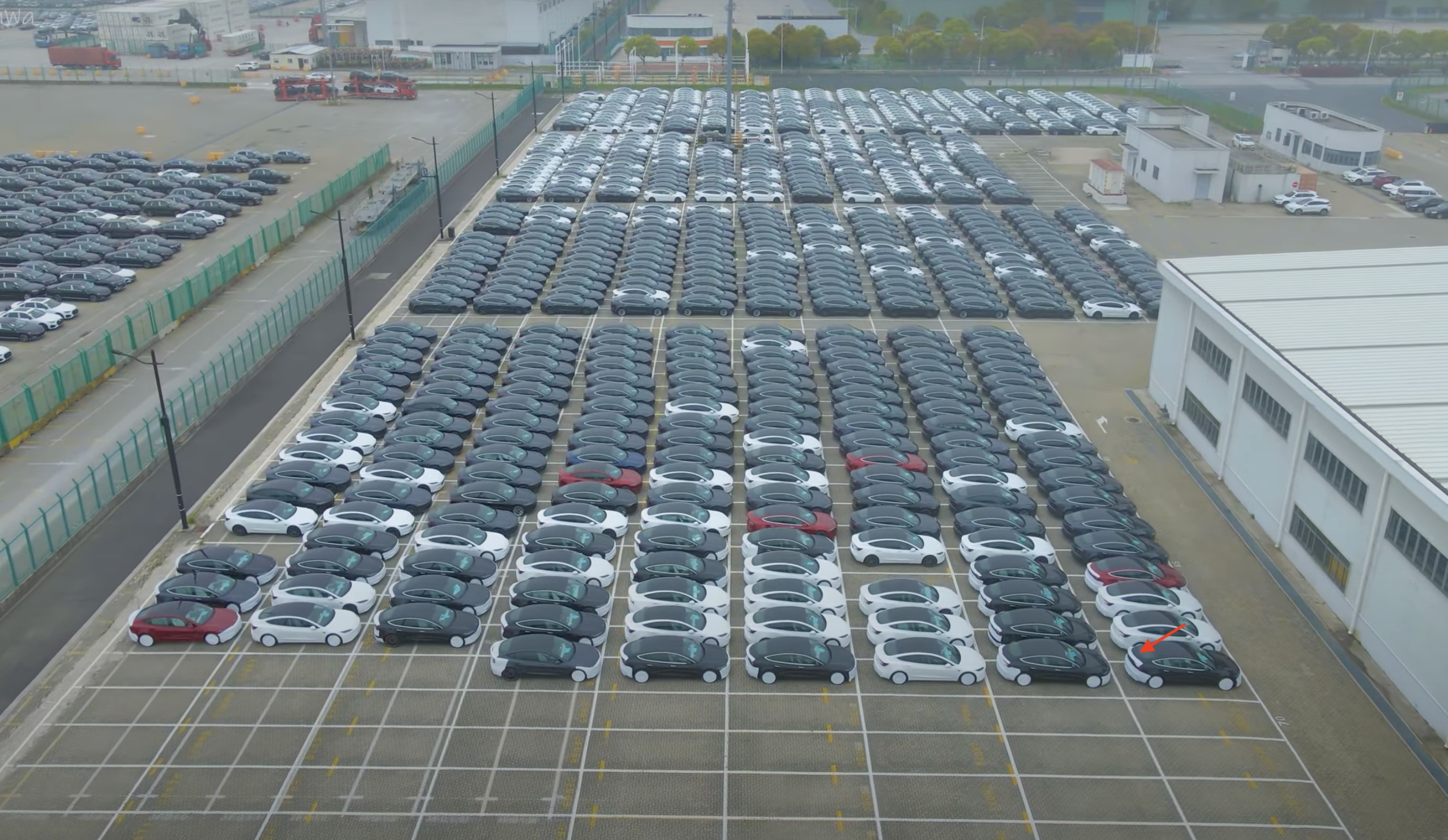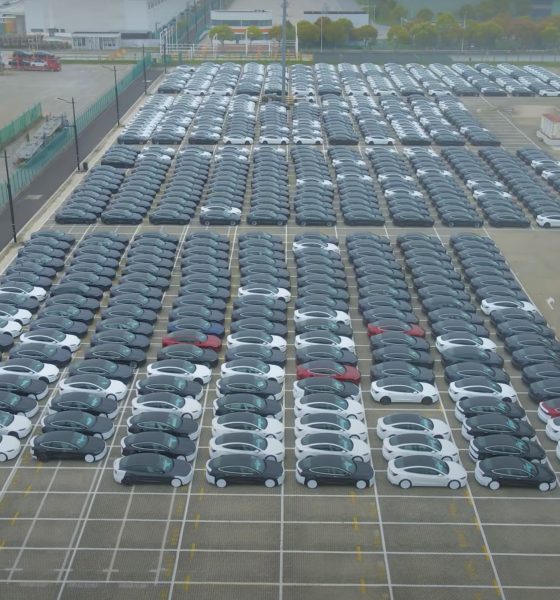Amidst a major auto industry shift to electric vehicles (EVs) and software-driven mobility, a new survey shows that almost all drivers want to have ownership over their own vehicle data—though consumer awareness on data privacy and ownership are still lacking.
As part of a survey of over 1,300 adults who lease or own vehicles that they drive at least once a week, car insurance app Jerry reported last month that 96 percent of respondents said they should be able to own any data generated by their vehicles. Similarly, 78 percent of those surveyed reported that they were either uncomfortable or extremely uncomfortable with having their data collected by automakers already.
You can see a few insights from the survey below, or check out the full report here.
Credit: Jerry Credit: Jerry Credit: Jerry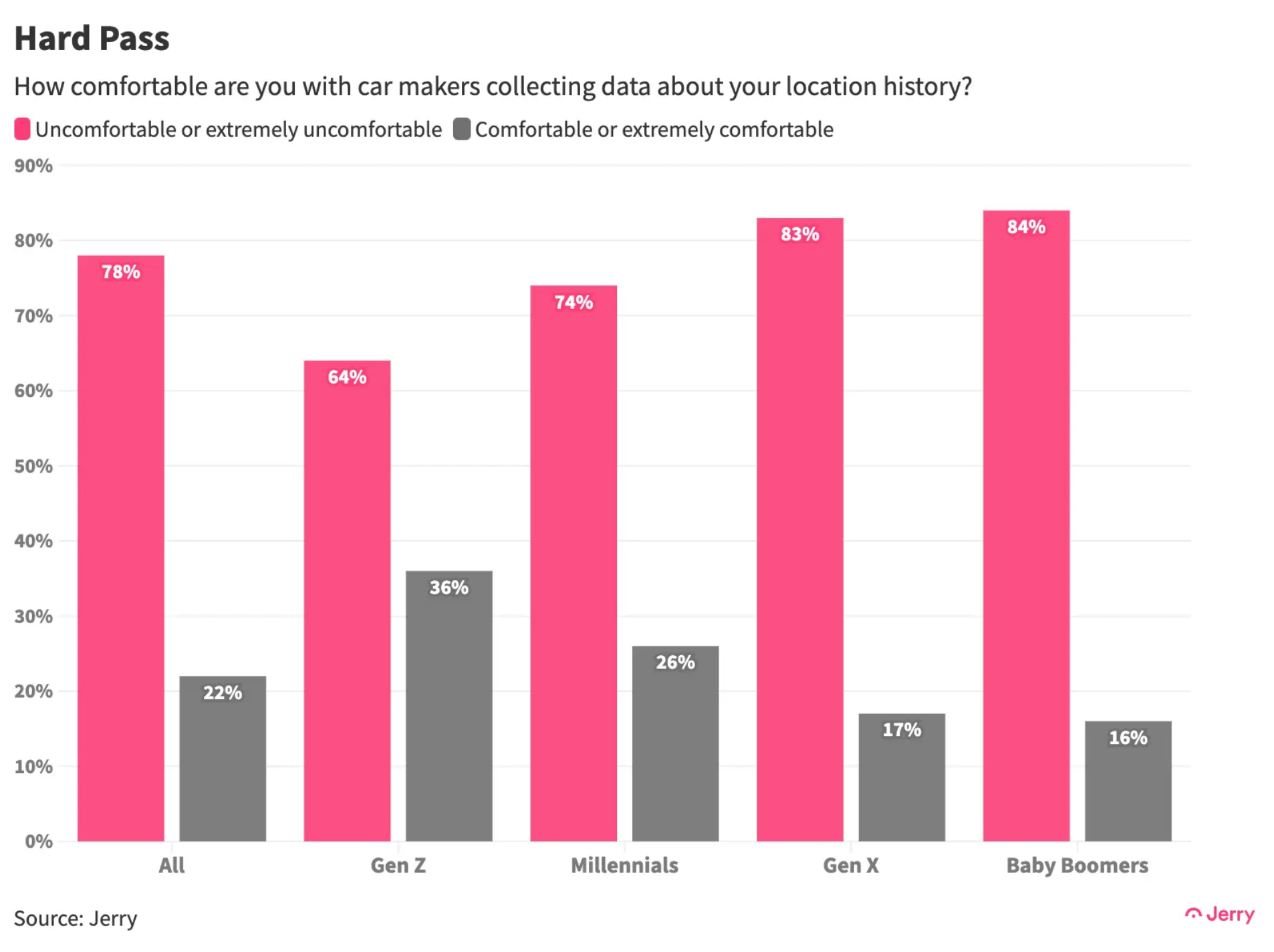
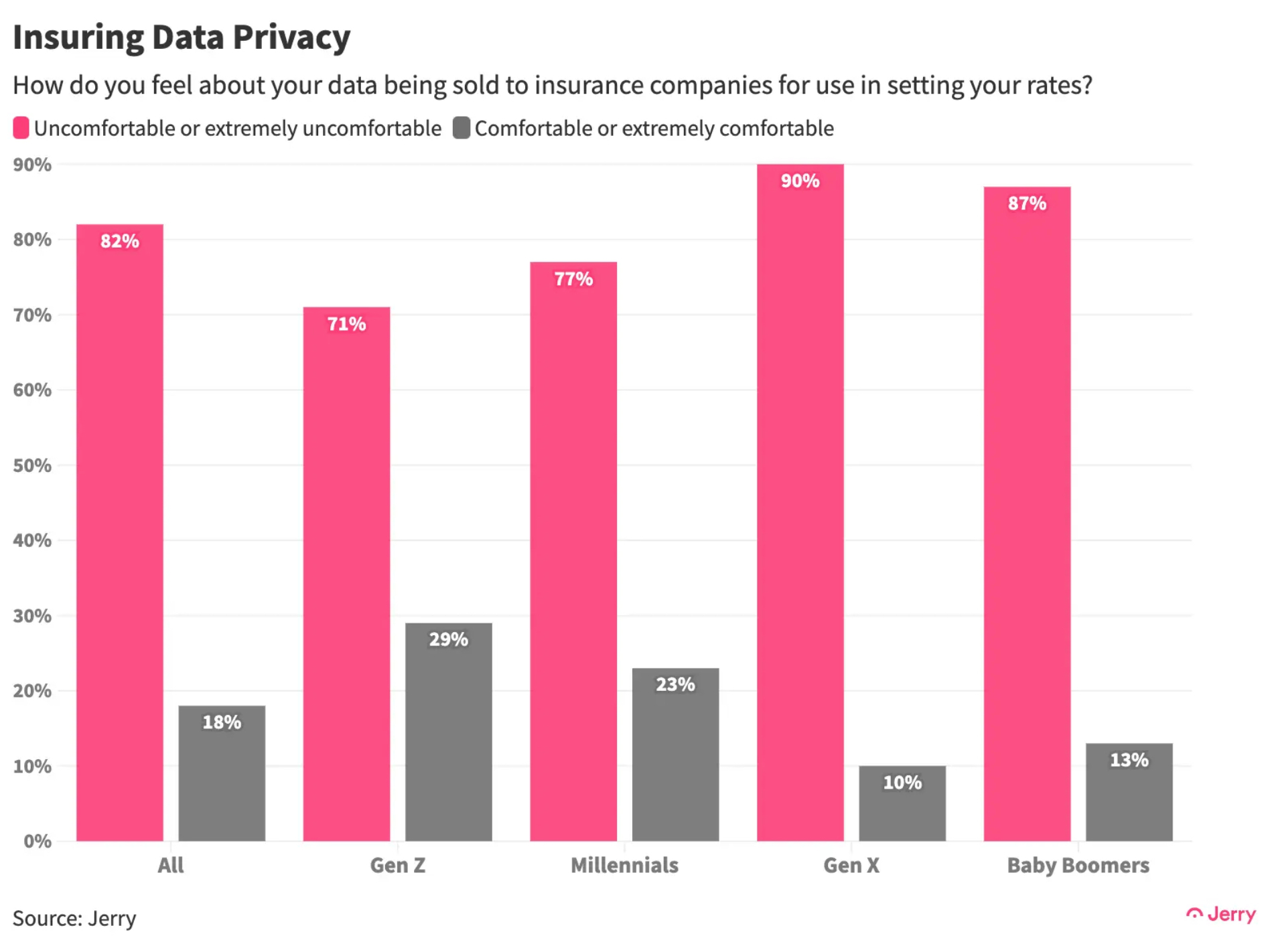
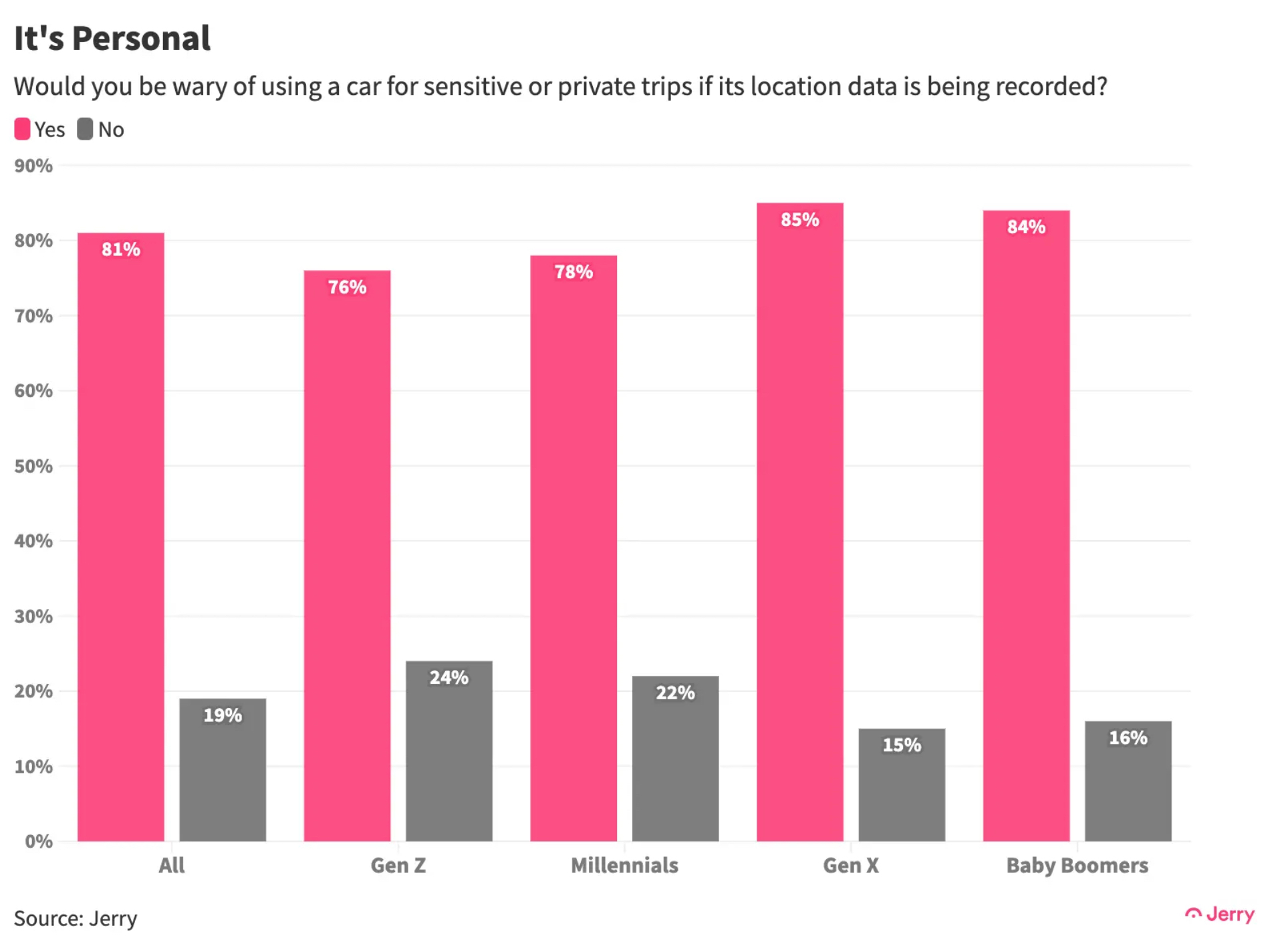
“People were nearly unanimous” in “thinking that they should own the data that is generated by their cars,” said Henry Hoenig, Jerry data journalist, in a statement to Automotive News.
The results come as many companies plan to use vehicle data as a consistent revenue stream, including manufacturers, insurance providers, and data brokers. On the consumer side, many may not be fully aware of how their vehicles are being connected to the internet, nor how their data is being used.
Data Collection in Modern Cars and Consumer Awareness
Teslarati spoke with Andy Chatham, co-founder of the connected vehicle platform Digital Infrastructure for Moving Objects (DIMO), about vehicle data ownership and privacy. He notes that modern cars include substantial amounts of data collection, such as Tesla’s 360-degree camera view around the cars as just one example. However, he also says that consumers are less likely to be aware of their vehicles’ data collection practices than they are with their cell phones.
“Generally, your vehicle is the most expensive or the second most expensive asset that you own, and traditionally people are very aware that their phones and their computers are connected to the internet,” Chatham said. “But especially with modern cars, it’s not always obvious that the car is also connected to the internet.”
Chatham says that most automakers aren’t generally following best practices surrounding cybersecurity, noting that many let third-party sub-contractors make those decisions for them, alongside other companies in the supply chain.
“Generally, [automakers are] not following best practices when it comes to how the vehicles are networked and how cybersecurity practices are implemented,” Chatham adds.
“I see a pretty big transition from the world of buying a phone and understanding that this is a device that has a lot of data collection going on, and buying a car and maybe acknowledging that once at the beginning, but never really understanding what that actually means.”
Chatham also says companies should open up their APIs for other developers to create applications using that data, and let vehicle owners access their own vehicle data and toggle permissions directly from their cars—not unlike what Tesla is currently doing.
However, even Tesla’s approach to vehicle data may leave a few things to be desired, and the company is one of many automakers to have faced legal action over the matter. Still, the DIMO co-founder estimates that Tesla is roughly three to five years ahead of the industry, perhaps except for Rivian.
Chatham also notes that as applications for car data improve more and more, and perhaps even offer certain data monetization options for consumers, owners will become more aware of vehicle connectedness. Still, the transition to this new public paradigm could be tricky for both consumers and developers.
“In order for that to even exist in the first place, there’s a chicken and egg problem, because developers don’t want to go cut separate deals with 10 different OEMs and get them to like agree to certain terms and use different APIs. They just won’t,” Chatham adds. “They just want to build to one thing, which is what they’re used to with both. It’s honestly a big enough pain in the ass to get developers to build an iOS and Android app and deal with two separate terms of service.”
“In the car world, Toyota is the biggest automaker and they’re, what, like 15 percent of cars? So it’s not the same dynamic, and then choice is the biggest thing that allows people to protect their own privacy because a lot of consumers don’t care.”
Automakers and the Use of Vehicle Data
Earlier this year, General Motors (GM) reported ceasing a partnership with one data broker, after discovering that the company had been selling customer data to insurance companies without gaining their consent. Public backlash ensued, and affected consumers said they witnessed inexplicable increases for their monthly insurance premiums, which were ultimately traced back to the telemetry program that had shared their data.
Ford and Progressive Insurance were involved in a similar case that brought data ownership and privacy to light in 2022. Last year, Mozilla said that all 25 car companies it examined as part of a study on privacy collected more personal data than necessary, even calling them “privacy nightmares.”
Unlike some companies, Tesla doesn’t sell or rent consumer data to third-party companies, though it does collect driver information on a fleet scale for its own purposes, as the company explains on its website.
“We’re committed to protecting you anytime you get behind the wheel of a Tesla vehicle. That commitment extends to your data privacy,” Tesla writes on its web page dedicated to the topic of privacy. “Our privacy protections aim to go beyond industry standards, ensuring your personal data is never sold, tracked or shared without your permission or knowledge.”
Tesla Insurance data has driven changes to vehicle design: Elon Musk
What are your thoughts? Let me know at zach@teslarati.com, find me on X at @zacharyvisconti, or send us tips at tips@teslarati.com.

News
Tesla influencers argue company’s polarizing Full Self-Driving transfer decision
Tesla maintains it will honor transfers for orders with initial delivery windows before the deadline and offers full deposit refunds otherwise, citing longstanding fine print that the program is “subject to change at any time.”
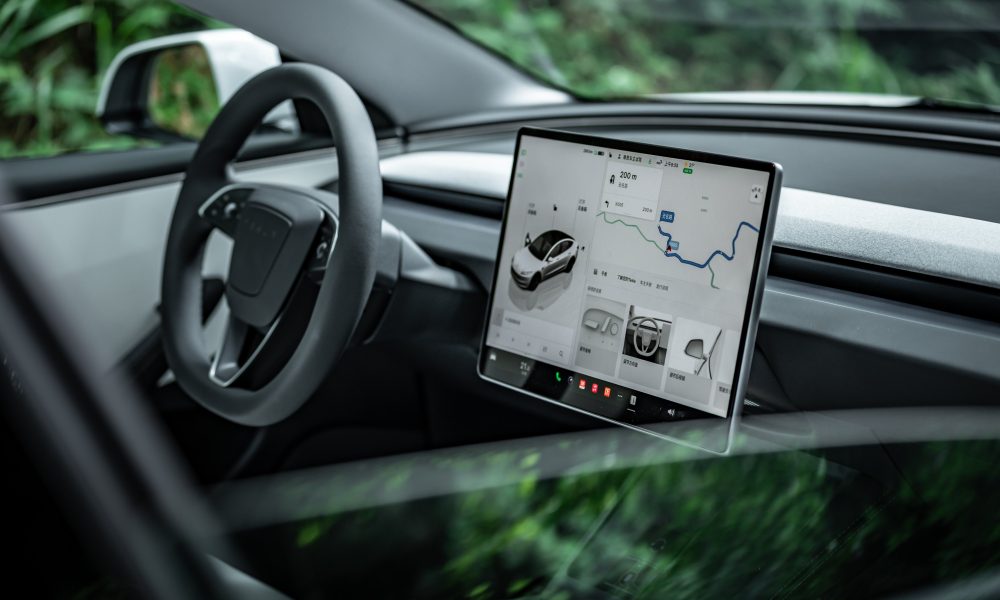
Tesla’s decision to tighten its Full Self-Driving (FSD) transfer promotion has ignited fierce debate among owners and enthusiasts.
The company quietly updated its terms in late February 2026, changing the eligibility from “order by March 31, 2026” to “take delivery by March 31, 2026.”
What began as a flexible incentive to boost sales, allowing buyers to transfer their paid FSD (Supervised) to a new vehicle, now excludes many, particularly Cybertruck owners facing delivery delays into summer or later.
Tesla maintains it will honor transfers for orders with initial delivery windows before the deadline and offers full deposit refunds otherwise, citing longstanding fine print that the program is “subject to change at any time.”
The reversal has polarized the Tesla community, with accusations of a “bait-and-switch” clashing against defenses of corporate pragmatism. Many owners who placed orders under the original wording feel betrayed, especially as production backlogs and new unsupervised FSD rollout complicate timelines.
However, Tesla has allowed them to cancel their orders and receive a refund.
Critics of the decision argue that the change disadvantages loyal customers who helped fund FSD development, calling it poor communication and a revenue grab as Tesla pivots toward subscriptions.
Popular influencers have amplified the divide. Whole Mars Catalog struck a measured but firm tone, acknowledging the original “order by” language but emphasizing Tesla’s right to adjust terms. He has continued to defend Tesla in this particular issue:
Sad to see so many fans trashing Tesla with such extreme language.
LIARS!!! PATHETIC!!! And if you aren’t as furious and angry as they are they are you’re “worshipping” and saying “they can do no wrong”.
Let’s get real here. They’re not liars. They offered FSD transfer to us… https://t.co/3Ay7vGaVR6
— Whole Mars Catalog (@wholemars) March 3, 2026
He criticized extreme backlash as “dramatization” and “spoiled kids,” noting the unsupervised FSD era and broader sales challenges make blanket transfers financially risky. Whole Mars advocated for polite outreach to CEO Elon Musk over the issue.
Rather than “calling them out”, I would simply say “Hey Elon, really hoped to be able to do FSD transfer on my cybertruck but the terms changed. Would really appreciate if Tesla could extend this to everyone who ordered before the terms changes”
that would probably work
— Whole Mars Catalog (@wholemars) March 3, 2026
In a contrasting perspective, Dirty TesLA voiced sharper frustration, posting that blocking transfers feels “crazy” and distancing himself from “people that want to worship a corporation and say they can do no wrong.” His stance resonated with owners who view the policy flip as disrespectful to early adopters.
Popular Tesla influencer Sawyer Merritt captured the frustration felt by thousands. In a widely shared thread viewed over 700,000 times, Merritt detailed how pre-change Cybertruck orders now risk losing FSD eligibility unless their initial delivery window falls before March 31.
It’s not a contradiction, it’s a change in policy that Tesla just made an hour ago. I am trying to check if the change is retroactive to all existing orders, including Cybertruck AWD orders, because if it is, that sucks big time.
— Sawyer Merritt (@SawyerMerritt) February 28, 2026
The controversy underscores deeper tensions—between Tesla’s need for revenue discipline and owners’ expectations of goodwill. As FSD evolves toward unsupervised capability, the community remains split: some see the change as necessary business, others as a broken promise. Whether Tesla reconsiders under pressure or holds firm remains to be seen, but it does not appear they are planning to budge.
News
Tesla Semi’s latest adoptee will likely encourage more of the same
Public visibility matters. When shoppers see a trusted name like Ralph’s running clean, high-tech trucks on public roads, skepticism fades. Competitors such as Albertsons, which pre-ordered Semis years ago, and other chains chasing ESG targets now have proof that electric autonomy works in real-world grocery fleets.
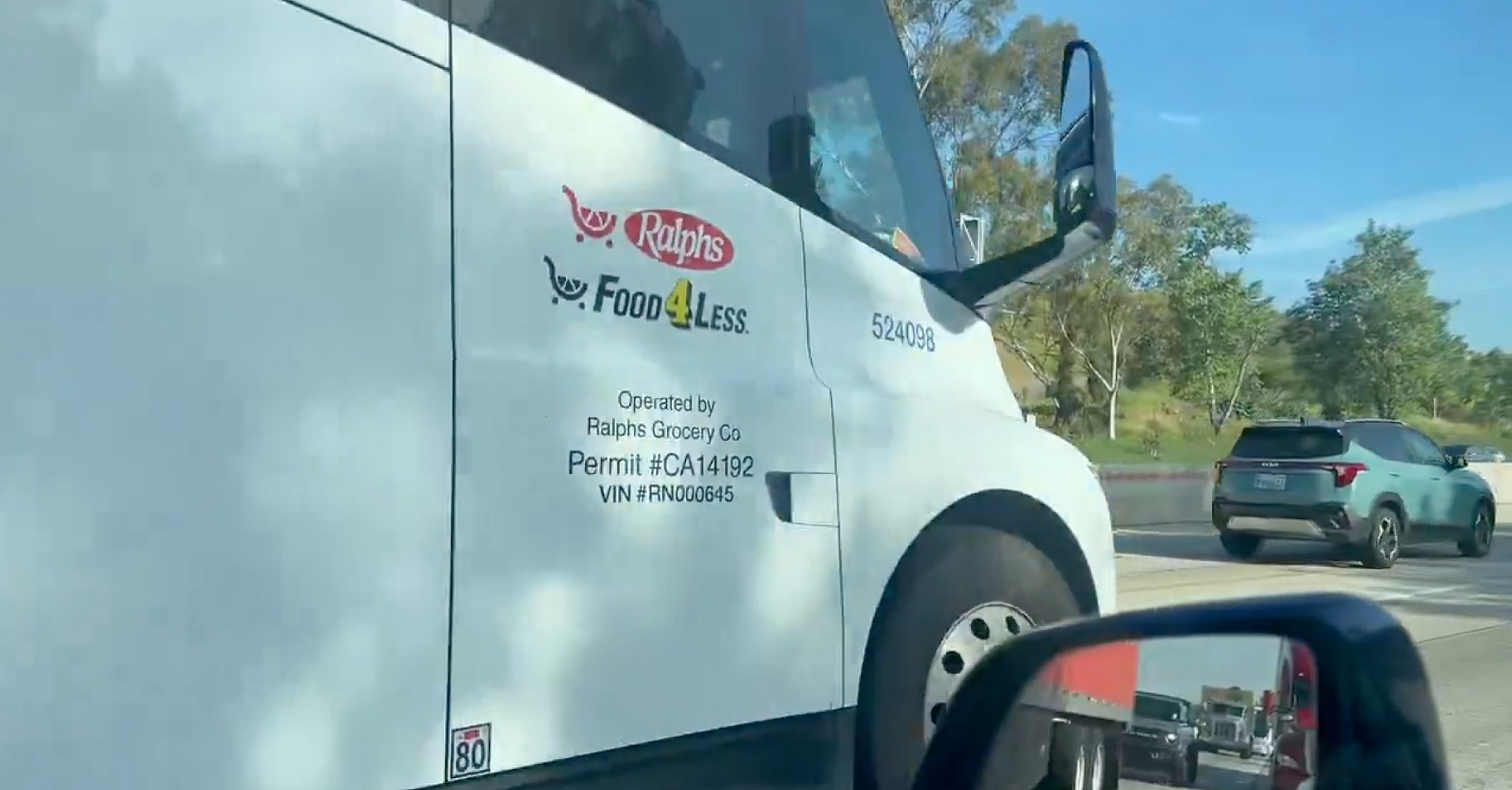
The latest adoptee of the Tesla Semi will likely encourage more businesses in the same realm to adopt the all-electric Class 8 truck, as a new company utilizing the Semi has been spotted in Southern California.
A sleek, futuristic Tesla Semi truck branded for Ralph’s Supermarkets was spotted cruising a Los Angeles highway in a viral 13-second dashcam video posted March 2, by X user ChargePozitive.
Tesla Semi Truck in the wild pic.twitter.com/SnQY8ShMMJ
— ChargePozitive ⚡️➕ (@ChargePozitive) March 2, 2026
This sighting confirms Kroger’s March 2025 partnership with Tesla to deploy up to 500 autonomous electric Semis.
While the initial announcement targeted Midwest supply chains, the California appearance under the Ralph’s banner shows the program expanding to Kroger’s West Coast operations. Ralph’s, a staple for millions of Southern California shoppers, is now hauling groceries with the Semi, which has zero tailpipe emissions and claims up to 500 miles of range per charge.
Tesla Semi pricing revealed after company uncovers trim levels
The timing could not be better for sustainable logistics. Traditional trucking accounts for a massive share of retail emissions, but Tesla’s Semi slashes fuel and maintenance costs while leveraging full autonomy to ease driver shortages and improve safety.
Tesla’s expanding Megacharger network, including new sites along major freight corridors and partnerships like the recently-announced one with Pilot Travel Centers, is removing range anxiety and making nationwide scaling realistic. There’s still a long way to go, but things are moving in the right direction.
Public visibility matters. When shoppers see a trusted name like Ralph’s running clean, high-tech trucks on public roads, skepticism fades. Competitors such as Albertsons, which pre-ordered Semis years ago, and other chains chasing ESG targets now have proof that electric autonomy works in real-world grocery fleets.
PepsiCo’s successful pilots already demonstrated viability, and Ralph’s sighting adds retail credibility.
As Tesla ramps high-volume Semi production through 2026, this isn’t an isolated curiosity. Instead, it’s a catalyst. More grocers adopting the platform will accelerate industry-wide decarbonization, cut operating expenses, and deliver tangible environmental wins.
The future of sustainable supply chains is already on the highway, and Ralph’s just made it impossible to ignore.
Moving forward, Tesla hopes to expand the Semi program into other regions, including Europe, which CEO Elon Musk recently said is a total possibility next year.
Elon Musk
Tesla ramps Cybercab test manufacturing ahead of mass production
Tesla still has plans for volume production, which remains between four and eight weeks away, aligning with Musk’s statements that early ramps would be deliberately measured given the Cybercab’s novel architecture and full reliance on Tesla’s vision-based Full Self-Driving technology.
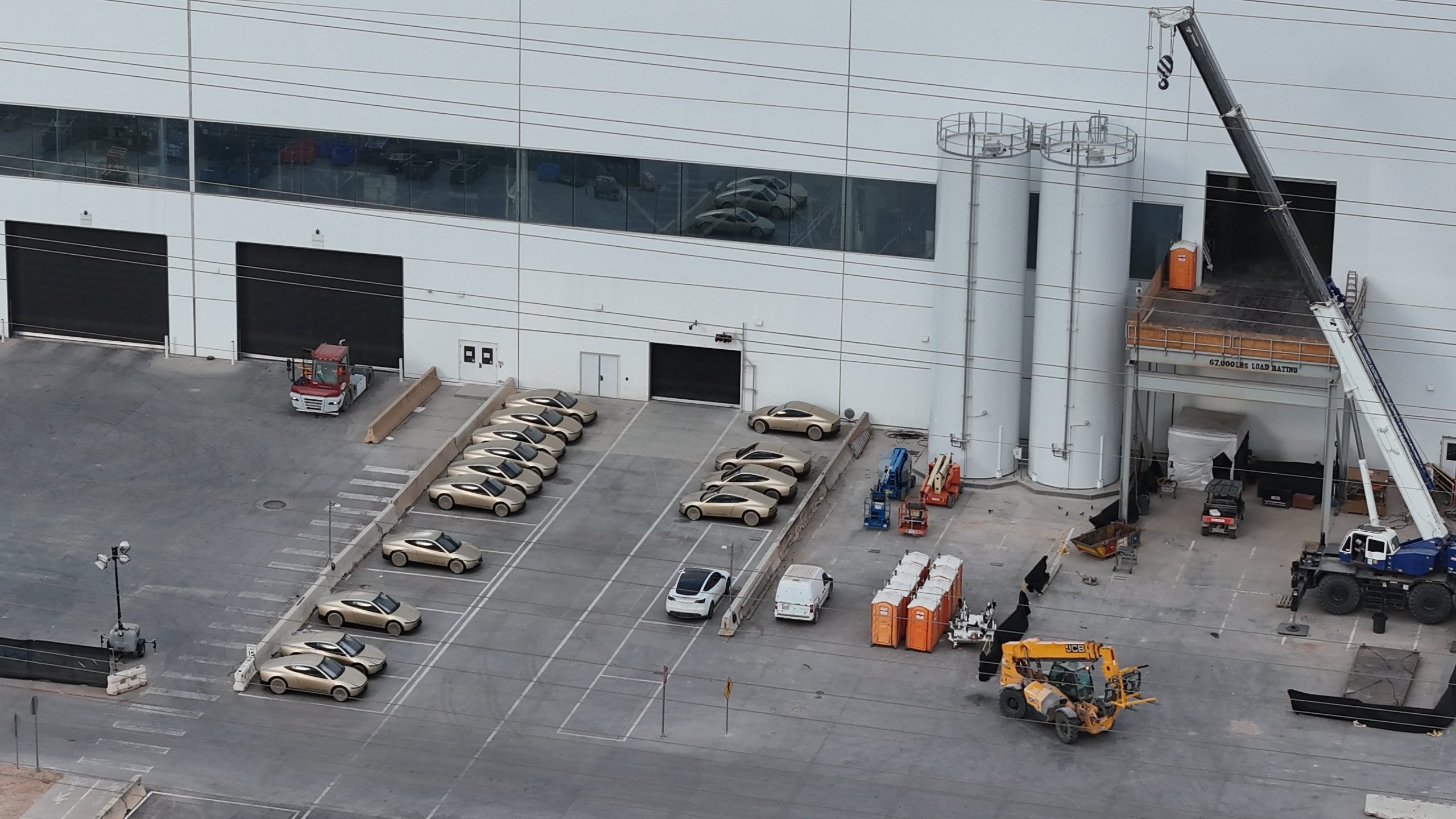
Tesla is seemingly ramping Cybercab test manufacturing ahead of mass production, which is scheduled to begin next month, the company said.
At Tesla’s Gigafactory Texas, production of the Cybercab, the company’s groundbreaking purpose-built Robotaxi vehicle, is accelerating markedly. Drone footage from Joe Tegtmeyer captured striking aerial footage today, revealing what appears to be the largest public sighting of Cyebrcabs to date.
A total of 25 units were observed by Tegtmeyer across the Gigafactory Texas property, marking a clear step-up in testing and validation activities as Tesla prepares for a broader output.
Tesla Cybercab production begins: The end of car ownership as we know it?
In the footage, 14 metallic gold Cybercabs were parked in a tight formation outside the factory exit, showcasing their sleek, autonomous-only design with no steering wheels, pedals, or traditional controls. Another 9 units sat at the crash testing facility, likely undergoing structural and safety validations, while two more appeared at the west end-of-line area for final checks.
Big day for Cybercab at Giga Texas today! Actually, yesterday to kick off March, the production line went into a higher volume & today we see 25 at three main locations, and there were several others I observed driving around too!
I think this may be the largest single grouping… pic.twitter.com/HZDMNv57lJ
— Joe Tegtmeyer 🚀 🤠🛸😎 (@JoeTegtmeyer) March 3, 2026
Tegtmeyer noted additional Cybercabs driving around the complex, hinting at active movement and real-world testing beyond static parking.
This surge follows the first production Cybercab rolling off the line in mid-February 2026, several weeks ahead of the originally anticipated April start.
That milestone, celebrated by Tesla employees and confirmed by CEO Elon Musk, kicked off low-volume builds on the dedicated “unboxed” manufacturing line, a modular process designed to slash costs, reduce factory footprint, and enable faster assembly compared to conventional methods.
Industry observers interpret the jump to dozens of visible units in early March as evidence that Tesla has transitioned into higher-volume test manufacturing.
Tesla still has plans for volume production, which remains between four and eight weeks away, aligning with Musk’s statements that early ramps would be deliberately measured given the Cybercab’s novel architecture and full reliance on Tesla’s vision-based Full Self-Driving technology.
The Cybercab, envisioned as a sub-$30,000 autonomous two-seater for robotaxi fleets, represents Tesla’s bold pivot toward scalable autonomy and robotics.
Tesla fans and enthusiasts on X praised the imagery, with many expressing excitement over the visible progress toward deployment. While challenges remain, including software maturity, regulatory hurdles, and supply chain scaling, the increased factory activity underscores Tesla’s momentum in turning the Cybercab vision into reality.
As Giga Texas continues expanding and refining the manufacturing process of the Cybercab, the coming months will prove to be a pivotal time in determining how quickly this revolutionary vehicle reaches roads in the U.S. and internationally.
